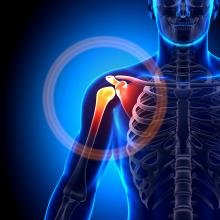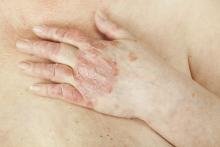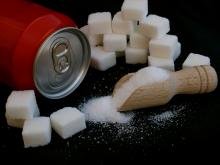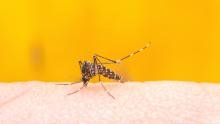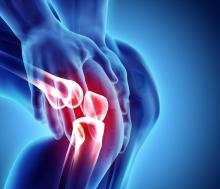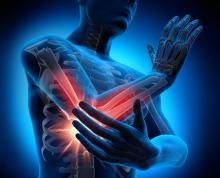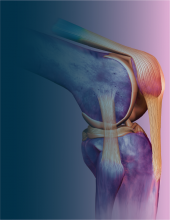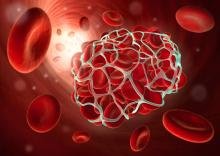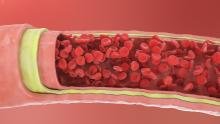E- ISSN: 2709-5533
Vol 3 / Jul - Dic [2022]
globalrheumpanlar.org
Columns
Sweet Poison
DOI: https://doi.org/10.46856/grp.22.et143
Forero Illera E. Dulce veneno [Internet]. Global Rheumatology. Vol 3 / Jul - Dic [2022]. Available from: https://doi.org/10.46856/grp.22.e143
Received date: 23/10/2022
Accepted date: 16/11/2021
Published date: 02/12/2022
Author:
Elias Forero Illera: Internista reumatólogo Correo: eforero64@gmail.com
To my regret, the old and well-known aphorism that says: “everything I like is fattening, harmful, or sinful”, has been confirmed once again. This time, the British Journal of Medicine was in charge of confronting my unhealthy tastes. It turns out that a study published by a French group – dedicated to researching the cardiovascular safety of synthetic sugar substitutes – showed that artificial sweeteners (especially aspartame, acesulfame potassium and sucralose) are associated with an increased risk of cardiovascular, cerebrovascular, and coronary heart disease1.
The findings, published in September 2022, state that these food additives, consumed daily by millions of people, which are present in thousands of foods and beverages, should not be considered a healthy and safe alternative to sugar. It goes without saying that the negative impact of sweeteners on cardiovascular disease has already been suggested by experimental observations, but the results of human and real-life studies were limited. That is why the data obtained by this work, from a large-scale prospective cohort, with more than 100,000 patients included, where all types of consumption habits of these substances were evaluated, is so relevant.
The consequences of sugar consumption are not limited to the effect on the capillaries of the cardio-cerebrovascular system. It has been shown that excessive intake of glucose, fructose, sucrose, and high fructose corn syrup in the Western diet can cause metabolic disturbances and induce the increase of inflammatory mediators and certain pro-inflammatory cytokines in various tissues, leading to insulin resistance and so-called chronic low-grade inflammation. This pro-inflammatory state induced by sugar-sweetened beverages plays a key role in the pathogenesis of rheumatoid arthritis (RA).
In a follow-up survey, different researchers found that women who drink the equivalent of a dollar a day in sugar-sweetened beverages had an increased risk of seropositive RA compared to women who do not consume these beverages, with a higher risk among women older than 55 years. Another reason why sugary drinks may cause RA, in addition to their important role in the autoimmune mosaic, is that they markedly impact the microbiome. High consumption of glucose- and fructose-sweetened beverages is known to reduce beneficial flora in the intestine, especially prevotella, which has been found to be closely associated with the pathogenesis of RA.2
The sad thing about these results is that they come when we were already close to reaching an armistice with the manufacturers of these sweeteners, where those of us with a sweet tooth, ended up accepting the dubious and indefinable sweetener flavor, in exchange for them being a safe replacement for the delicious but always harmful sugar. Diabetics, dyslipidemics, obese people, and all those whose cardiovascular risk increases with the consumption of the delicious and addictive sugar know that hamburgers, hot dogs, pizzas, empanadas, stuffed potatoes and arepas, cakes, puddings, pastries and all those delicacies of the cardio-toxic brain gastronomy, cannot be enjoyed with water, no matter how well carbonated it may be. Those who know to properly ingest these foods know full well they can only be paired with the highly promoted black sodas (I’ll refrain from naming them so as not to get the editor of Global Rheumatology in trouble). They just don’t taste the same along with other beverages. As my grandmother would say: they taste like “a fool’s kiss”.
A better tasting and less dangerous kiss could be obtained by eating diets such as the Mediterranean diet. The ingestion of this type of diet has been shown to reduce the incidence of diseases such as RA when compared to Western diets, which are rich in sugar.
To all those involved in the sugar, soft drink, and sweetener industries, I extend an invitation to sponsor serious, undeceiving3 research, that will find safe, good-tasting alternatives to your current “diet” beverages. A good-tasting sweetener that does not stimulate chronic low-grade inflammation will be the holy grail of the safe food industry.
Referencias:
- Debras C , Chazelas E , Sellem L , Porcher R , Druesne-Pecollo N , Esseddik Y et al. Artificial sweeteners and risk of cardiovascular diseases: results from the prospective NutriNet-Santé cohort. BMJ 2022;378:e071204 doi:10.1136/bmj-2022-071204.
- Ma X, Nan F, Liang H, et al. Excessive intake of sugar: An accomplice of inflammation. Front Immunol. 2022;13:988481. Published 2022 Aug 31. doi:10.3389/fimmu.2022.988481.
- Kearns CE, Schmidt LA, Glantz SA. Sugar Industry and Coronary Heart Disease Research: A Historical Analysis of Internal Industry Documents [published correction appears in JAMA Intern Med. 2016 Nov 1;176(11):1729]. JAMA Intern Med. 2016;176(11):1680-1685. doi:10.1001/jamainternmed.2016.5394





































































